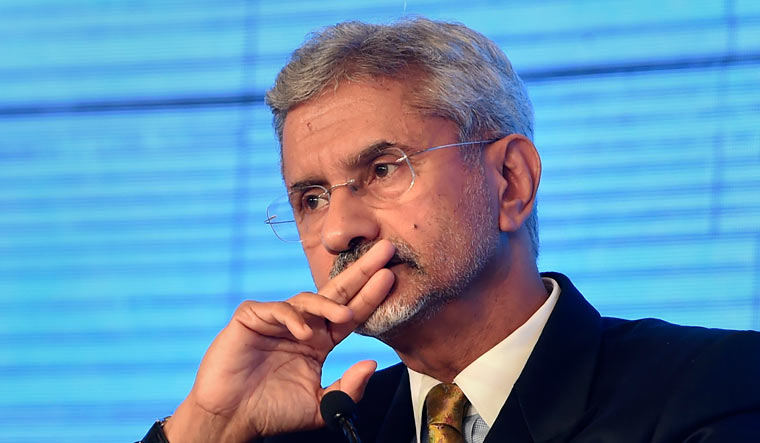The interests of minorities, women and vulnerable sections of society must be preserved and the issue of violence across the country and its neighbourhood has to be effectively addressed, said External Affairs Minister S. Jaishankar, at the inaugural session of the Intra-Afghan Peace Talks on Saturday.
The historic talks between representatives of the Afghan government and representatives from civil society, including four women delegates on one side, and the Taliban on the other, are being hosted at Doha. Jaishankar addressed the inaugural ceremony of the meet through a video conference.
India was among the 30 countries invited for the talks. Apart from India, the United Nations, United States, Russia, China, Pakistan, Indonesia, as well as all the countries with which Afghanistan shares a border, Central Asian republics and other stakeholders were invited to the ceremony. India has also sent an official delegation, led by J. P. Singh, joint director in the external affairs ministry's Pakistan-Afghanistan-Iran division for the ceremony. The actual talks will commence on Monday. India was invited to the inauguration by the Qatar government, the host for the talks.
Jaishankar reiterated India's stand that any peace process in Afghanistan must be Afghan-led, Afghan-owned and Afghan-controlled, and has to respect the national sovereignty and territorial integrity of Afghanistan and preserve the progress made in the establishment of a democratic Islamic Republic of Afghanistan. The last bit is important, given that India has worked hard at establishing institutions of democracy –both the brick and mortar kind as well as the processes–in Afghanistan. India had, some years ago, built the parliament building of Afghanistan in Kabul.
The imminent Talibanisation of Afghanistan, as the country strives for that elusive peace, has been apparent for some years now. It is a matter of concern for India, given the deep links between the Taliban and Pakistan, specially Pakistan's ISI. The Haqqani Network of the Taliban has attacked Indian assets in Afghanistan regularly. However, despite all concerns, India cannot afford to completely isolate itself from Kabul at a time when the Taliban gets into some power sharing arrangement in the government. India has invested heavily in Afghanistan – 400 projects already completed across all the 34 provinces, as well as worked hard in capacity building, by training soldiers, diplomats, bureaucrats and academicians. In fact, the current chargé d'affaires at the Afghan embassy in New Delhi, Tahir Qadiri, is an alumnus of OP Jindal University. Besides, India knows that if it steps back at this stage, the gap left behind will be promptly filled by China, which is already expanding its footprint in Kabul.
The peace talks were initiated by the US in February 2020, after a historic deal between America's special envoy to Afghanistan, Zalmay Khalilzad, and Taliban leader Mullah Abdul Ghani Baradar. The US is keen to exit from the long war in Afghanistan, and an important part of the peace process would be a steady withdrawal of US troops from 13,000 to 8,600 and down to around 4,500 a few months down the line. The US hopes to completely withdraw forces from Afghanistan by the end of next April. In return, the Taliban will enter the government in some form. India did not have ties with the regime, which was ruled by Taliban from 1996 to 2001, recognised only by Pakistan, Saudi Arabia and the UAE. However, since the Taliban was overthrown, India has invested heavily in rebuilding the country, and is the largest regional aid provider.
Afghanistan will get Talibanised, former foreign secretary Kanwal Sibal had said at a recent lecture.
The question is now only how soon will that happen. The US is in a hurry; President Donald Trump wants the boots on ground reduced before he heads to the polls, while the Afghan government might want to tarry and see what the new regime in the US looks like. Also, a new generation in Afghanistan, which has grown up in a democratic space and has modern aspirations, is not willing to get dragged back into the medieval mindset of the Taliban.
Will the Taliban itself change form to adjust into the new world? Whatever the developments, it is clear that India will have to learn to manoeuvre space for itself in the new reality that is emerging.



